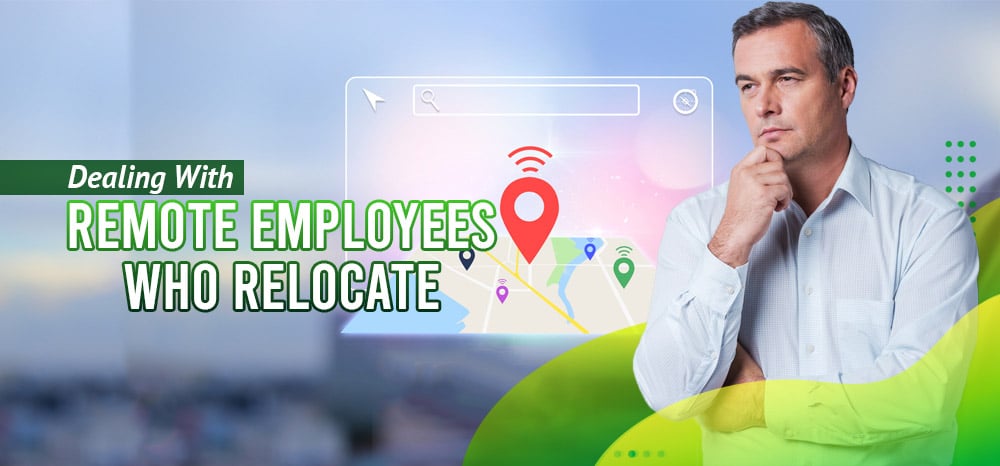The pandemic has transformed the way we do things, especially when it comes to work. Traditional business establishments closed down their physical offices. Later, they adopted a fully remote workplace, giving opportunities to people beyond geographical borders.
Remote work becoming more mainstream led most employees to choose remote work positions over the alternative. As a result, many have decided to pick up and relocate to new cities or even different countries.
But what does this mean for their employers?
The Growing Trend of Moving Away

With companies taking their operations online, employees have more freedom to live far away from their company HQs. This fast-growing trend is even expected to increase as more businesses choose a fully remote work setup.
In fact, Forbes magazine conducted a survey and found out that roughly 20 million people are planning (and willing) to move to new places, all thanks to their remote work status.
This isn’t really a cause for concern if you’re a remote worker. After all, that allows you to work from practically anywhere.
However, if you’re an employer, it can be a different story.
Business Implications Brought About By Relocation

Let’s get this straight. Employers don’t have to worry about productivity when remote workers move far away. Chances are, they will still be great at what they do regardless of where they’re based.
The chief concern here boils down to state tax and employment laws and regulations.
When your remote workers relocate to a different state or country, you won’t just have to change the home address in their personal data files. You may also have to acquaint yourself with the payroll tax regulations that may apply to their new location.
Every state has its own set of rules when it comes to income tax withholding requirements. Thus, if an employee moves, their employer is obliged to address the tax obligations owed to the new state or country.
Stricter Compliance Regulations

Many employers assume that compliance expectations will ease up because of the pandemic. Some expect the rules to change as WFH arrangements become more prevalent.
However, it’s not a good idea to count on pandemic-related exceptions.
Keep an eye on your remote workers’ locations as well as the tax regulations in their respective states and/or countries. This way, you’ll be able to avoid penalties or worse, costly legal complications.
Issues and Challenges to Resolve
Always get ahead of compliance issues and challenges before they become a problem. Here are three important steps to take:
Ensure Accurate Information

Keep track of your remote workers and ensure that they submit accurate information, especially about where they’re based.
Also, check in with them regularly. Not just to keep track of their progress but also to monitor if they’ve moved (or are planning to move) to another city or country.
Help With Productivity

Most employees have legitimate reasons for moving to another location. If their move will give rise to certain issues, then it’s best to determine their reasons for moving.
If it’s because they feel isolated, encourage each team member to collaborate and check in with each other.
Maintain Open Communication

In case your remote employee still chooses to move, don’t stand in their way. Especially if they have good reasons behind it and if their productivity isn’t an issue.
As long as there’s open communication between the management and remote workers, moving to a new location shouldn’t really be a problem.
Many workers will continue to prefer working remotely. And it goes without saying that they’ll likely keep moving as well.
But as long as you maintain an open and clear policy, you should still be able to get the most out of remote work.
Remote Staff has been assisting AU SMEs and entrepreneurs find and hire skilled remote workers from the Philippines for the last 15 years and counting. Aside from hiring, we also take care of all tax and government-related obligations so you can focus on more important things from the get-go.
Call us today or schedule a call back and let’s get started.
Serena has been working remotely and writing content for the better part of the last decade. To date, she's written for Pepper.ph and Mabuhay Magazine, among others, and has churned out more than a thousand articles on everything from The Basics of Stock Market Investing to How to Make Milk Tea-Flavored Taho at home. Hermits, aspiring hermits, and non-hermits with interesting project propositions may email her at serena.estrella10@gmail.com.
























 Zero Recruitment Fee
Zero Recruitment Fee